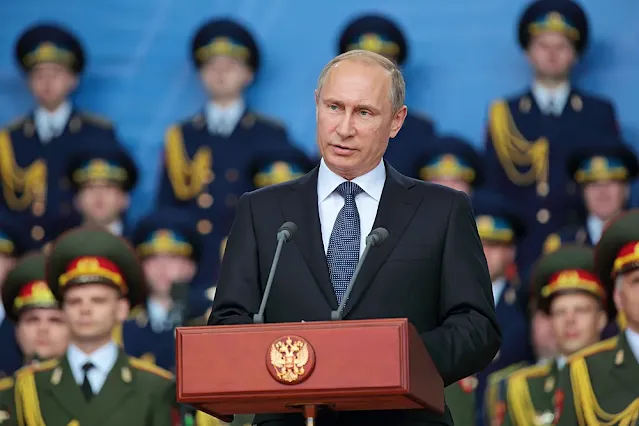As Vladimir Putin gears up for re-election, he has opted not to pen a manifesto. Instead, he seized the opportunity during his annual state of the nation address to campaign effectively.
Unsurprisingly, Putin commenced his speech by addressing what matters most to him personally:
the ongoing conflict in Ukraine. The address to both chambers of the Russian parliament conveyed a palpable sense that this is a pivotal moment. In the eyes of Russian leadership, the country has achieved a significant geopolitical milestone, solidifying its long-term strategic advantage.
In contrast to last year's address, where Putin seemed uncertain about the outcome of the confrontation, this time he exuded confidence. His rhetoric was proud and assertive, signaling that Russia had already crossed a critical threshold. The military initiative had been seized, and Russia was now on the offensive.
The scope of this "holy war" has expanded.
While a year ago, Putin emphasized the defense of "our land" and employed sacrificial language, this year he spoke as a victorious force. No longer portraying Russia as a geopolitical victim, he positioned it as a "formidable and invincible" entity. This shift reflects the Kremlin's growing faith in Russia's military superiority in the conflict with Ukraine, coupled with a perception of weakness and fragmentation in the West.
Beyond Ukraine,
Putin made it abundantly clear that his agenda extends further. He presented Russia as a bastion of traditional values, fundamental to human civilization, and positioned himself as a geopolitical ideologist with global backing, including millions of supporters in Western countries.






